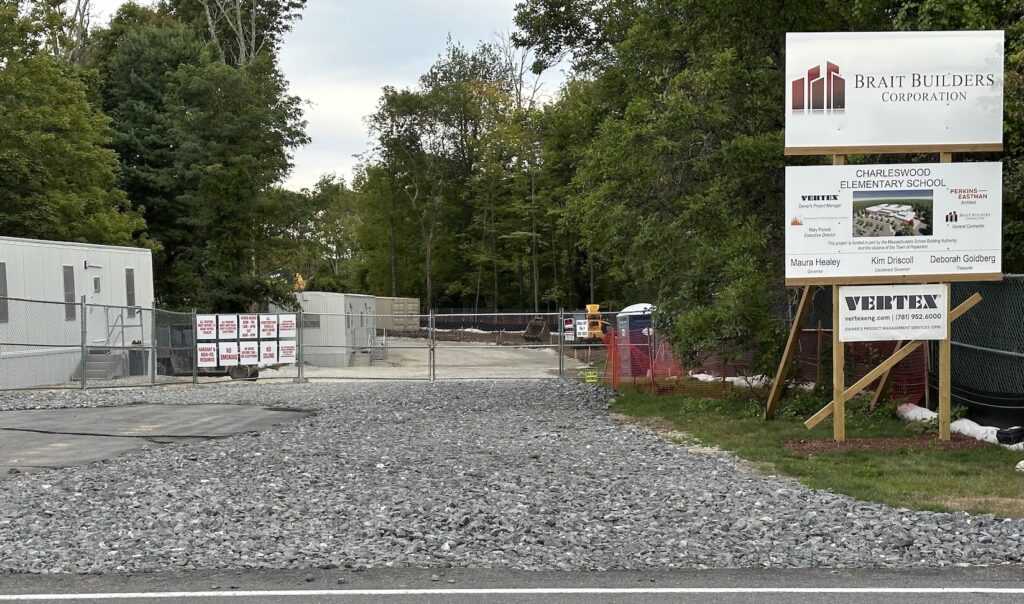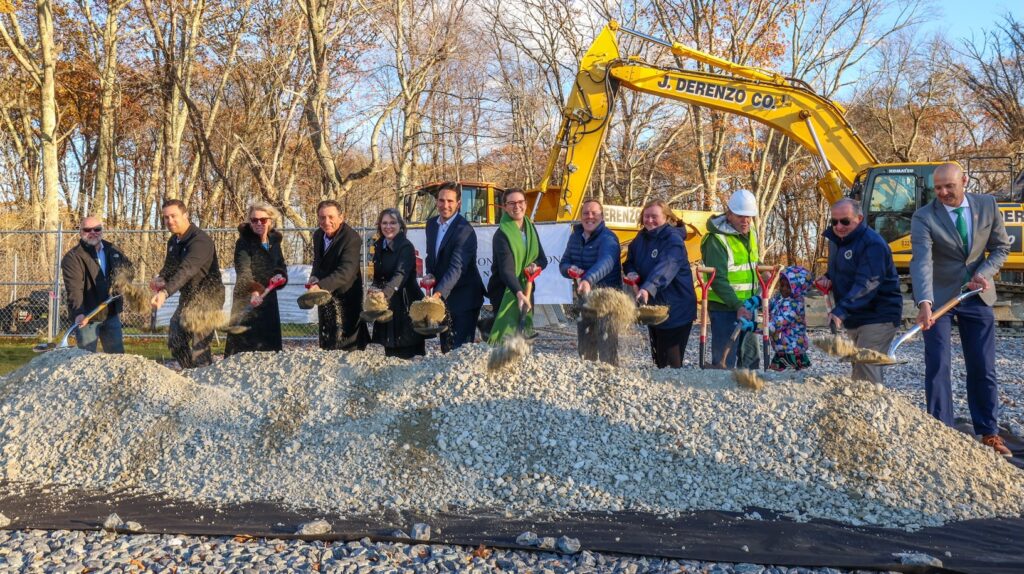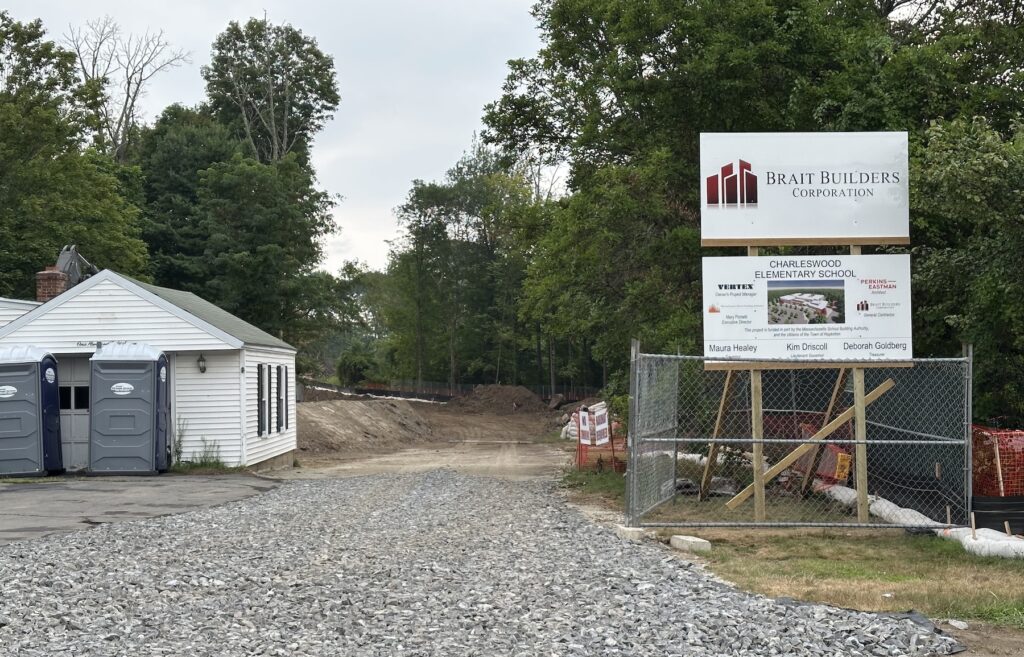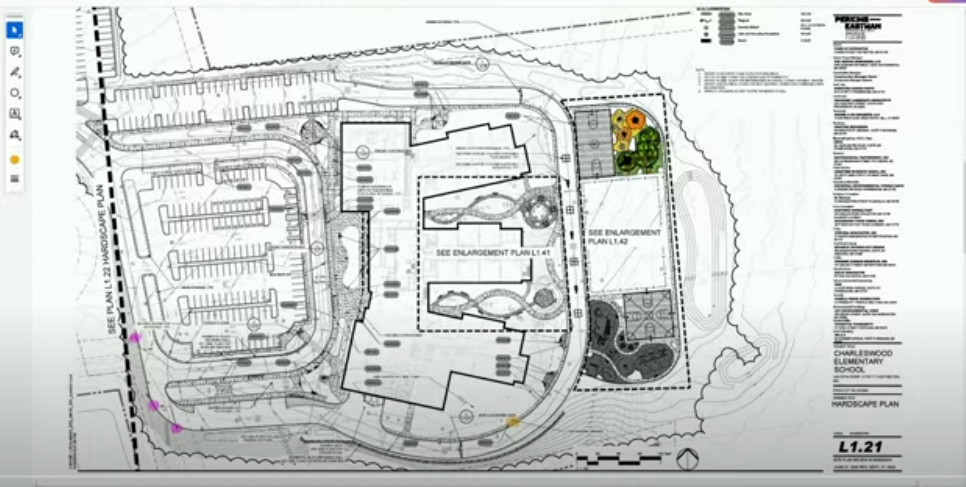State plumbing code changes and an Environmental Justice Community designation in a portion of Hopkinton have impacted the new Elmwood School project. Members of the Elementary School Building Committee on Tuesday discussed these topics along with possible theming opportunities in the building’s design.
Robert Bell, architectural firm Perkins Eastman’s educational programmer/principal, noted that changes to the Massachusetts Plumbing Code, effective Dec. 8, include requirements for gender-neutral toilets and additional sinks.
The requirements call for at least one single-user gender-neutral restroom provided on the floor within 300 feet of a multi-user restroom. Each toilet must be separated by a lockable partition that extends from the floor to ceiling to provide privacy.
The number of required fixtures is calculated based on an equal number of individuals per gender.
According to Bell, what this means for Elmwood’s project is the addition of a dozen sinks as well as a revised toilet room plan featuring a combination of traditional gender-specific bathrooms and the addition of more gender-neutral rooms.
Bell explained that even before the code change, several bathrooms in the building were intended to be gender-neutral anyway. This setup was planned for two single-toilet rooms in the nurse’s office, four in special education rooms, and 14 for staff members.
In an unrelated matter, additional shifts in design were made to avoid having a gym overhang, Bell said.
Technology rooms were moved down one door each, and rooms for reading and math specialists were swapped between the gym and firewall, he said.
Programming and lighting would not change, and Bell said the move would make the areas “more efficient while resolving structural complications.”
Portion of Hopkinton has EJC designation
Christopher Eberly, Vertex’s project manager, spoke about the permitting process involving the Massachusetts Environmental Policy Act (MEPA) office.
Originally, it was thought that a portion of Ashland would trigger a full-scope MEPA review because of an Environmental Justice Community (EJC) designation. Instead, the new school will be located a mile from an EJC section of Hopkinton, Eberly said.
The full review will be required because of the creation of five or more acres of impervious area and the project receiving Massachusetts School Building Authority (MSBA) funding.
Based on census data, Hopkinton has a 65% minority area with 2% language isolation. If more than 5% did not speak English, verbal and written communications would have to accommodate those other languages, Eberly said.
What it means is that the ESBC must conduct public meetings for that targeted group, although all residents would be welcome. Residents will be given the opportunity to ask questions of the project team as will organizations and agencies on behalf of that resident group.
As it did before Town Meeting, the team must emphasize how the school will benefit the community by an overall reduction in the number of buses, reduced traffic, etc., according to Eberly.
“This school is as much a good thing for the target community as it is for all of Hopkinton,” he said.
MEPA’s intent is to ensure that the 65% minority group is not “being marginalized,” Eberly added. “The census track information identifies groups that might otherwise not have a say.”
It is the agencies that may take issue with some part of the project that could cause delays, he said.
“This opens it up to all state agencies that receive notification and can comment on the project. A lot can come up,” Eberly said. “It’s a whole layer of state” getting involved. As examples, he cited the Department of Environmental Protection (DEP) asking about trees, the Massachusetts Historical Commission asking about a house being torn down, or the Department of Transportation having questions about traffic lights.
“We’ll push for a resolution as we get to permitting in general,” he said.
The MEPA permitting process is separate from the town permits the new school will have to seek and obtain from the Planning Board, Conservation Commission and others.
The ESBC will submit documentation highlighting previous information sessions and public hearings leading up to Town Meeting, with some of the presentations likely repeated.
However, it will not negate the need for additional targeted outreach through mailers, public meetings and reporting on attendance and how much feedback they receive, Eberly noted.
Natural resource design concepts offered
In other business, Bell spoke about design concepts, mentioning how Hopkinton’s “abundant natural resources” could be incorporated into the school’s décor. For example, he described having the gym associated with “meadow,” the media center with “forest” and the cafeteria with “marsh.”
Additionally, corridors could be trails, named or not, Bell said.
He emphasized that he was just throwing out ideas and sketches to show how tiles and materials could help bring about the various natural looks.
“It’s not an increase in scope. We’ll take the budget, materials and colors we have … and translate it throughout the school, reinforcing the neighborhood identity and scale,” Bell said.
A “concept collaboration” group, consisting of the superintendent, assistant superintendent, principals, teachers representing Grades 2, 3, 4 and four related arts teachers from Elmwood and Hopkins Schools, will meet four times.
Bell said it is important to “maintain a timeless and flexible aesthetic” specific to Hopkinton.
School Committee vice chair Amanda Fargiano noted that board is starting the naming process for the new Elmwood School and she recognized that the name sometimes connects with the design.
“It’s nice to see continued design refinements,” added ESBC chair Jon Graziano.
The next ESBC meeting is in person on Feb. 6 at 6 p.m.


















0 Comments